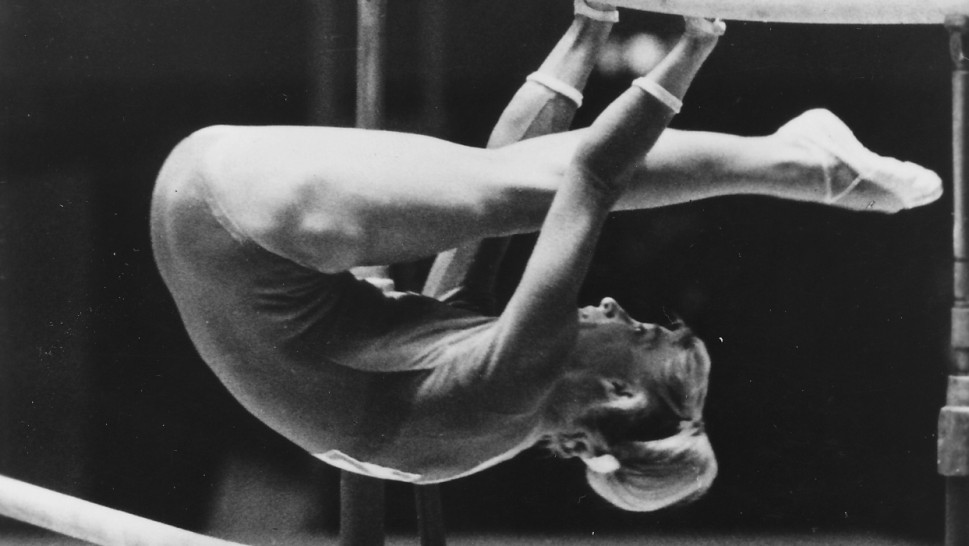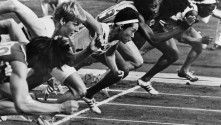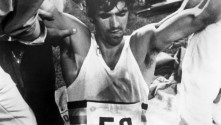
Japan’s Olympic Cinema
Few Olympic moments have produced as lasting an artistic mark as those of Japan. From the PR documentaries created by radical filmmakers such as Kazuo Kuroki and Noriaki Tsuchimoto contextualizing the transformation of Japan leading up to the 1964 Tokyo Olympics, to the unjustly lesser-known work of New Wave icon Masahiro Shinoda showcasing the 1972 Winter Games in Sapporo, the Olympic spotlight presented, at multiple chronological points, both structured platform and ideological stimuli to a number of celebrated filmmakers. At the center of the Japanese Olympic cinema lies, of course, Kon Ichikawa’s government-sponsored documentary on the historic 1964 Summer Games, Tokyo Olympiad, a colossal dedication of the camera to the feat of human achievement.
While many of these films were generated through initial recruitment from state and corporate entities, in almost all instances they were condemned for being too “artistic,” rather than “record-centric,” their experimental, artistic lens deemed unsuitable for the more nationalistic intentions of their commissioning authorities. Ichikawa was famously criticized by the Minister of the Olympics, Ichiro Kono, for overemphasizing artistic aspects and failing to “properly record the event” in his commissioned film, resulting in governmental withdrawal of support for its release and even the bitter creation of a second film, Sensation of the Century, pieced together from Ichikawa’s own footage of the 1964 Tokyo Games. Fueling this controversy was a desire on the part of the Japanese state to employ the cinematic camera in its larger project of gloriously debuting a reconstructed Japanese nation physically and philosophically transformed by the postwar international order.
As the Olympics return to Tokyo in 2020, this program considers the relationship between the commissioned auteur and the Olympic spectacle, placing this within the context of Japan’s strategic utilization of the Olympic spotlight for the reinvention of its postwar identity. – Emily Kim, Joint AFVS & East Asian Studies Concentrator, Class of 2021











